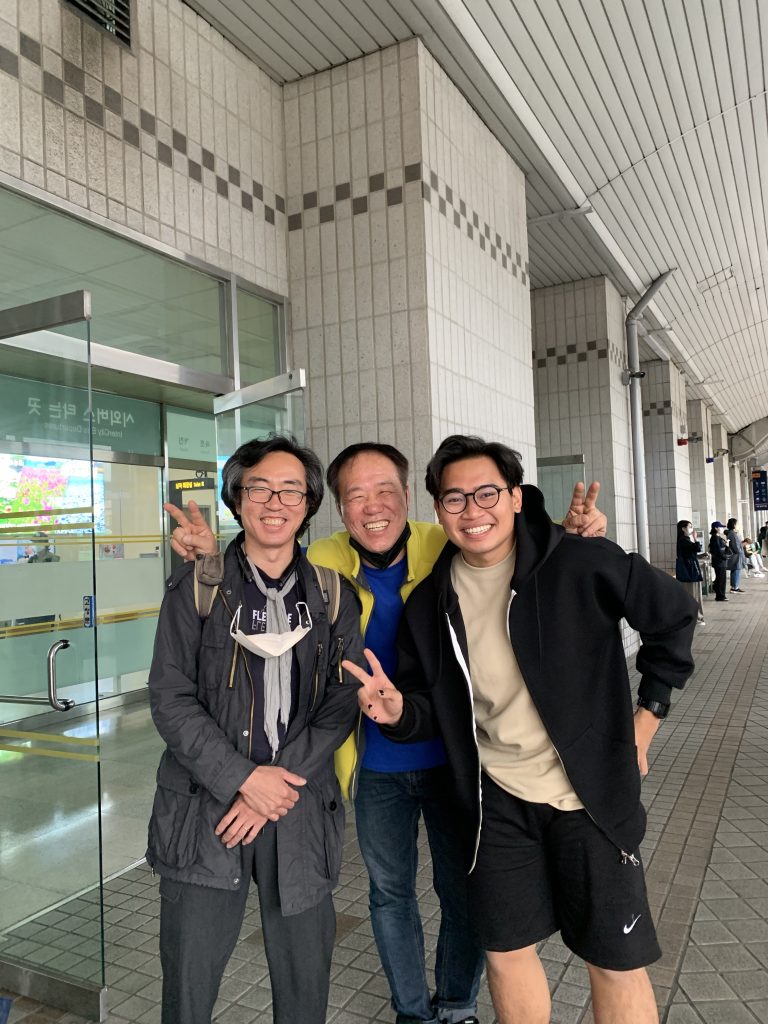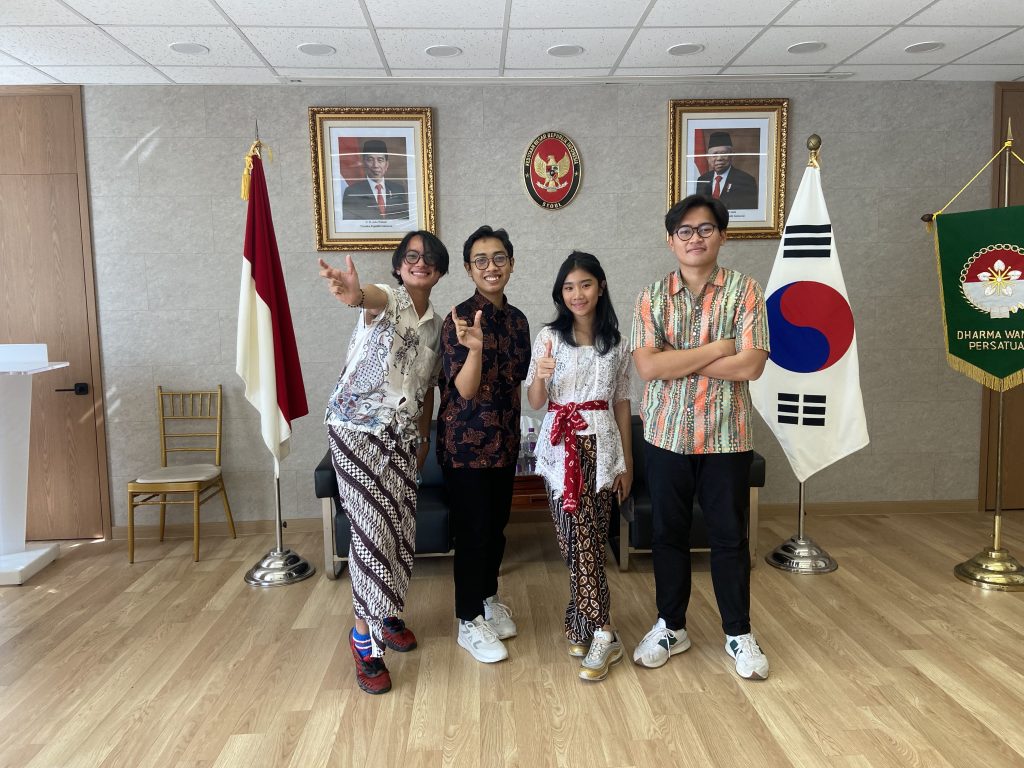Dear reader,
I am Vilo Azhar Muska, an Indonesian student who had the privilege of participating in an exchange program at Gyeongsang National University in South Korea. The experience was truly life-changing and opened my eyes to a whole new world of culture, education, and especially personal growth. This experience was a defining moment in my life, it was nothing short of transformative. I am grateful for the opportunity to share my story with you.
AIMS Program: Expected Outcomes
ASEAN International Mobility Students Programs (AIMS) aims to create a vibrant student mobility program for citizens of all SEAMEO member countries. Mobility will have a positive impact on academic and cultural development as well as political, social, and economic spheres. The training of skilled university graduates with cross-cultural experience aids labor mobility in the region, thus developing a skilled ASEAN workforce to meet individual countries’ human resources needs. Student mobility provides an infrastructure for students to travel and learn in countries in the region. If promoted, this can lead to the effective circulation of human resources in the region, where countries make use of qualified graduates from other nations.
Introduction to the Host University
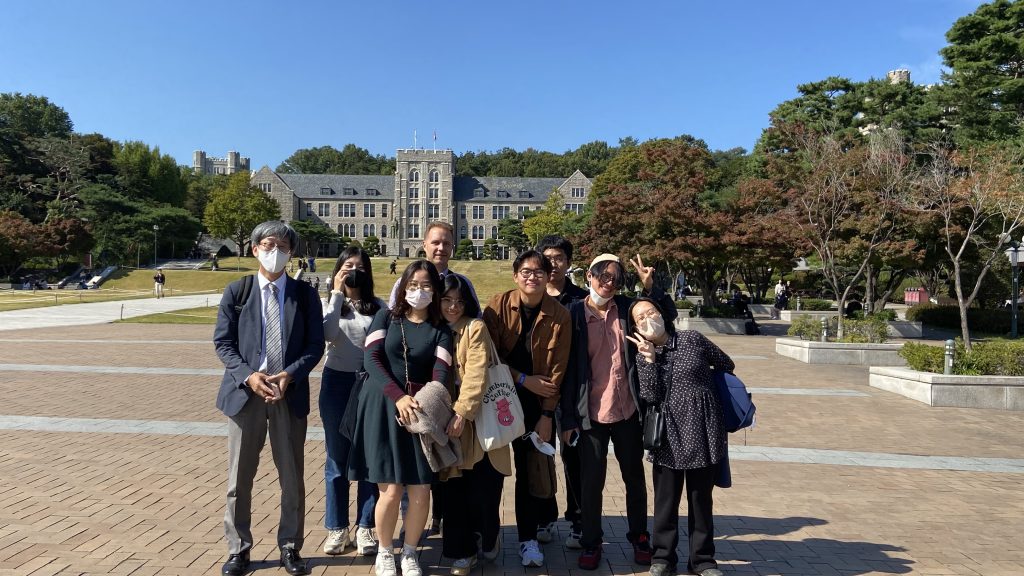
The exchange program was a unique opportunity for me to immerse myself in a new culture and academic environment. I was excited to challenge myself and gain new perspectives, and I was not disappointed. From the moment I arrived in South Korea, I was struck by the warmth and hospitality of the Gyeongsang National University community.
The College of Agriculture and Life Sciences gave birth to the Gyeongsang National University and now at the college 80 professors conducting education, research, and voluntary service cultivate the students who will be involved in producing and supplying safe food, establishing the farming villages of good living, preserving environments of the territory, reasonable production, and use of agricultural and livestock products. In addition, they reeducate the industrial workers related to agriculture and render technical guides to them to lead the development of regional agricultural industries.
The Department within the College of Agricultural and Life Sciences is classified as one of the social sciences, comprehensively approaching the economic issues related to agriculture and its related industries. Its goal is to cultivate key leaders in the above areas, having professional knowledge in the agricultural economy. Its educational contents are focused on cultivating rational decision-making in agriculture and its related industries by applying biological knowledge and economic theory based on the independent theory system of an agricultural economy. It also enhances the ability to investigate and research, correct judgment about the agricultural economy and agricultural policy, as well as an ability to solve such issues.
Academic Activities
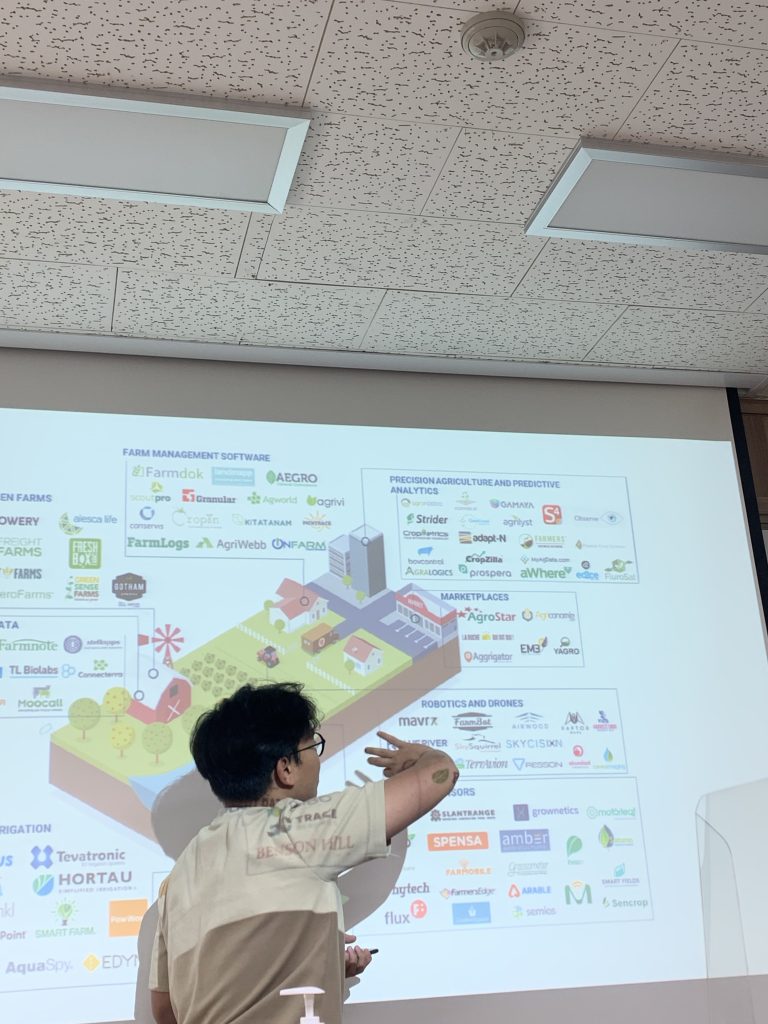
The academic experience at Gyeongsang National University was exceptional. The university offered a range of courses that allowed me to expand my knowledge and deepen my understanding of various subjects. I was particularly impressed by the quality of the lectures and the interaction between students and professors. The professors were knowledgeable, and engaging, as well as fostered a supportive learning environment. I was able to participate in lively debates and discussions with my professors and classmates, which further broadened my perspectives. During my time at Gyeongsang National University, I had the opportunity to take a range
of classes that broadened my understanding of the world and its complex economic systems.
One of the classes that stood out to me was “Financial Regulation in Emerging Markets and the Rise of Fintech Companies.” This course was eye-opening and taught me about the challenges that emerging markets face when it comes to financial regulation. I learned about the role that fintech companies play in providing financial services to people who might otherwise be excluded from traditional banking systems. This class gave me a better understanding of the challenges facing emerging economies and the potential solutions that can help them overcome these challenges.
Another class that was particularly interesting was “How Entrepreneurs in Emerging Markets can master Blockchain Technology.” I was fascinated by the potential of blockchain technology to disrupt various industries and revolutionize the way we conduct business. This class taught me how entrepreneurs in emerging markets can use blockchain technology to create new opportunities and improve the lives of people in their communities. I learned about the benefits and limitations of blockchain technology, and how it can be leveraged to create more equitable and sustainable economic systems.
In “Economics of Natural Resources and the Environment,” I gained a deeper understanding of the complex interplay between economics and the environment. I learned about the challenges that arise when we try to balance economic growth with environmental sustainability. This class taught me about the importance of considering the long-term impacts of our economic decisions, and the role that governments and businesses can play in creating more sustainable economic systems.
“Economics of Agricultural Production” and “International Agriculture” were two other classes that expanded my knowledge of the global economic system. In “Economics of Agricultural Production,” I learned about the challenges facing agricultural producers and the role that governments and international organizations play in supporting the agricultural sector.
Non-academic Activities & Personal Experiences
Aside from academics, I was also able to experience the rich culture of South Korea. The country is famous for its traditional festivals, and I was fortunate enough to attend several during my stay. I was amazed by the vibrant colors, lively music, and sheer enthusiasm of the participants. These experiences gave me a glimpse into the heart and soul of South Korean culture and allowed me to appreciate its unique beauty. I also had the opportunity to travel and explore different parts of South Korea, from the bustling streets of Seoul to the tranquil beaches of Busan.
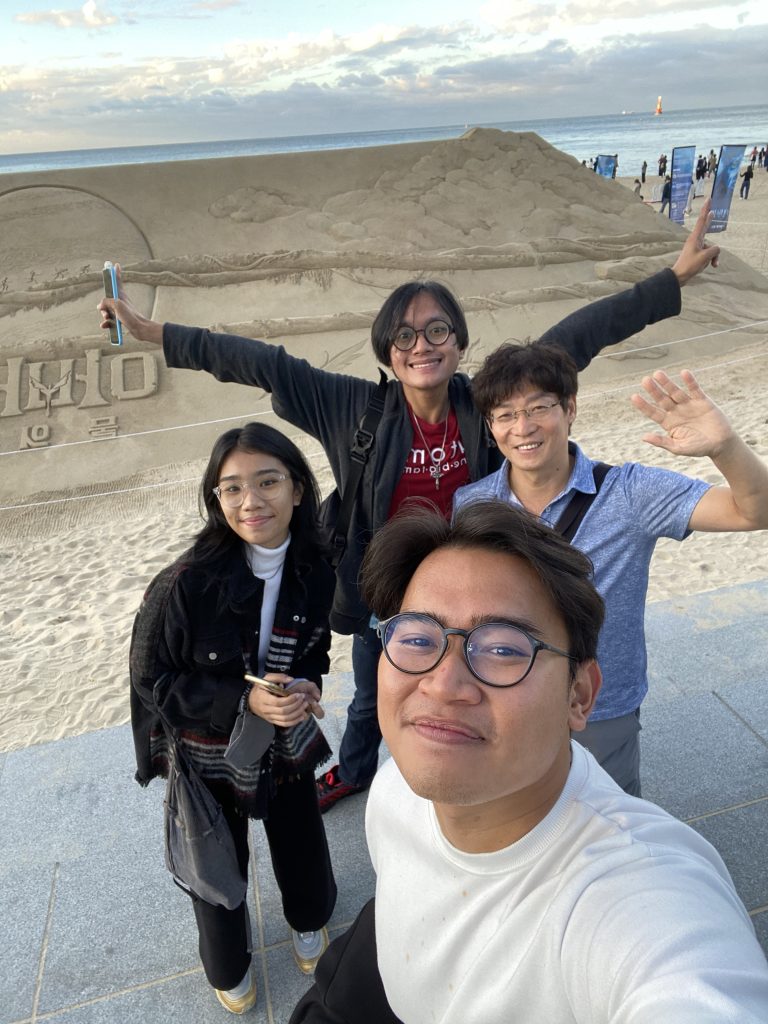
The exchange program was a journey of self-discovery for me. I was able to challenge myself academically, immerse myself in a new culture, and gain a greater understanding of the world. Through this experience, I discovered a new level of confidence and resilience within myself. I learned that stepping out of my comfort zone and embracing new experiences can lead to personal growth and self-discovery.
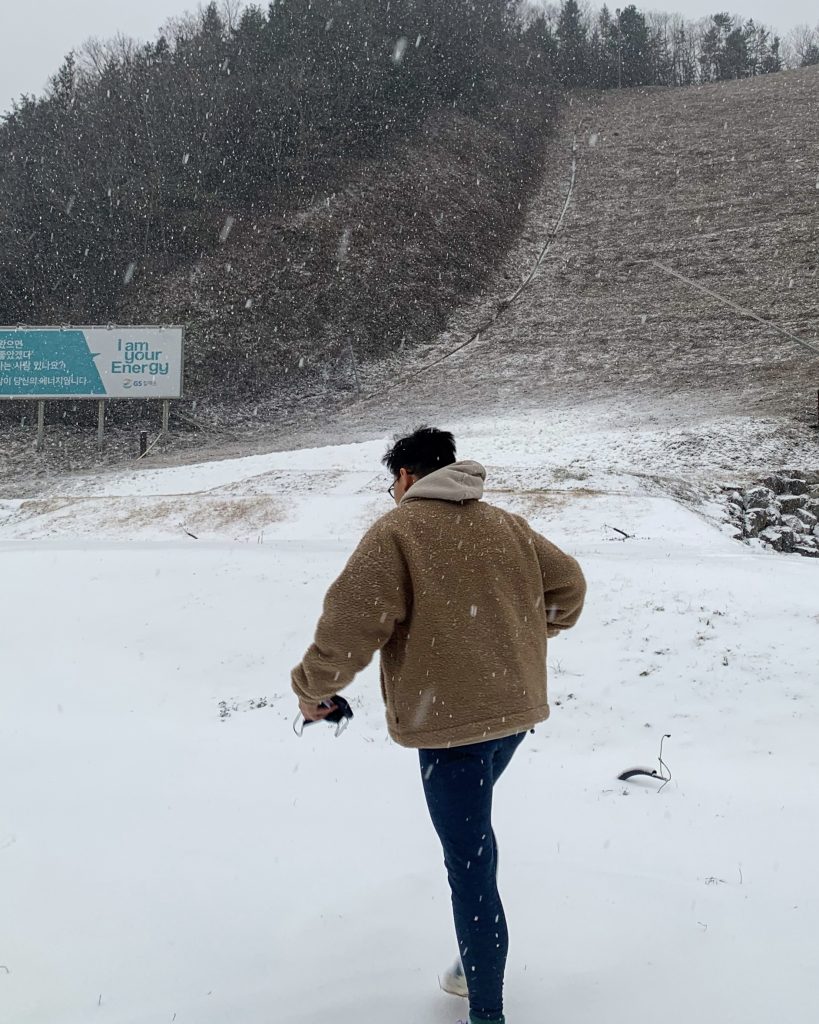
One of the things that I found particularly impactful was my exposure to a new culture. South Korea is a country rich in tradition, yet it is also a country that is rapidly advancing in technology and innovation. This combination of old and new was a fascinating experience for me and opened my eyes to new ways of thinking. As I immersed myself in the culture, I began to understand more about myself and what I value most.
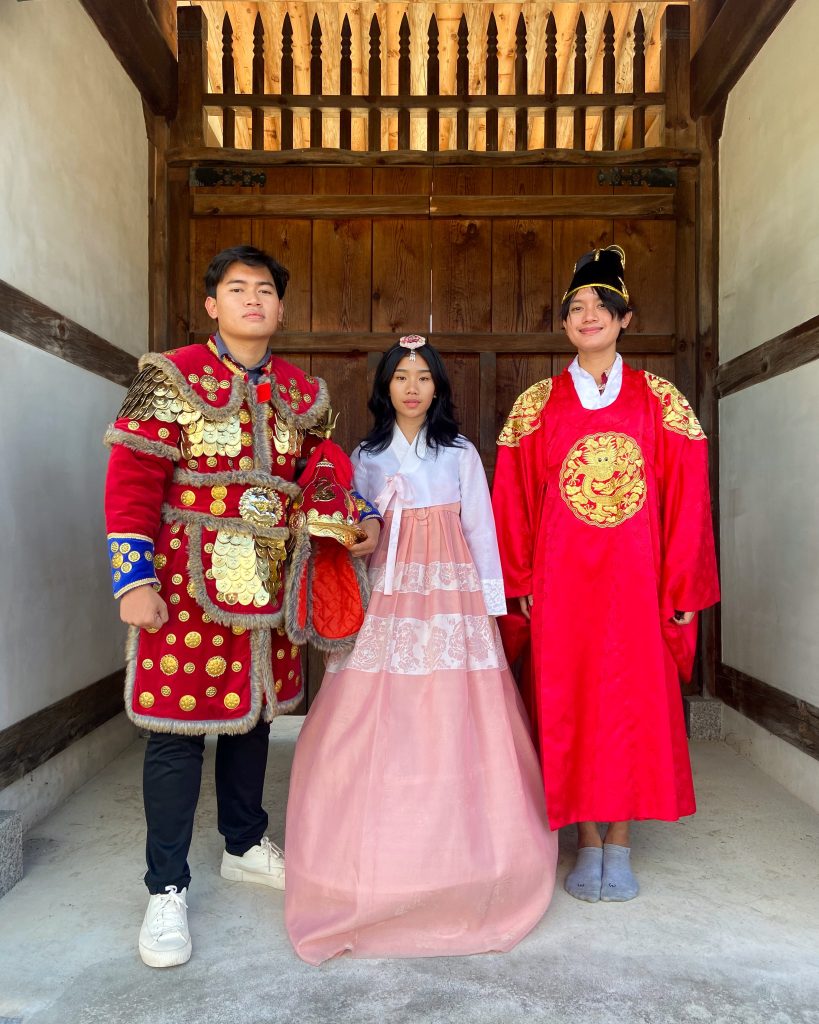
Another aspect of my exchange program that was transformative was the opportunities I had to meet new people. I met students from all over the world and had the chance to hear their stories and learn from their experiences. This exchange of ideas and perspectives broadened my worldview and helped me to see things from a new perspective. I also formed strong relationships with my classmates, who were a constant source of inspiration and support.

Finally, my time in South Korea helped me to clarify my goals and vision for my future. I was able to reflect on my strengths and weaknesses and consider what I wanted to achieve in the years to come. I realized that I want to make a positive impact in the world and that I want to use my skills and knowledge to help others. This newfound sense of purpose has given me the drive and motivation to pursue my future goals with renewed energy and determination. In conclusion, my exchange program at Gyeongsang National University was a life-changing experience that helped me to find myself and plan for a more successful future. The exposure to a new culture, the relationships I formed, and the opportunities I had to reflect on my goals have all been instrumental in shaping who I am today and what I want to achieve in the future. I am grateful for the experience and look forward to continuing my journey of self-discovery.
